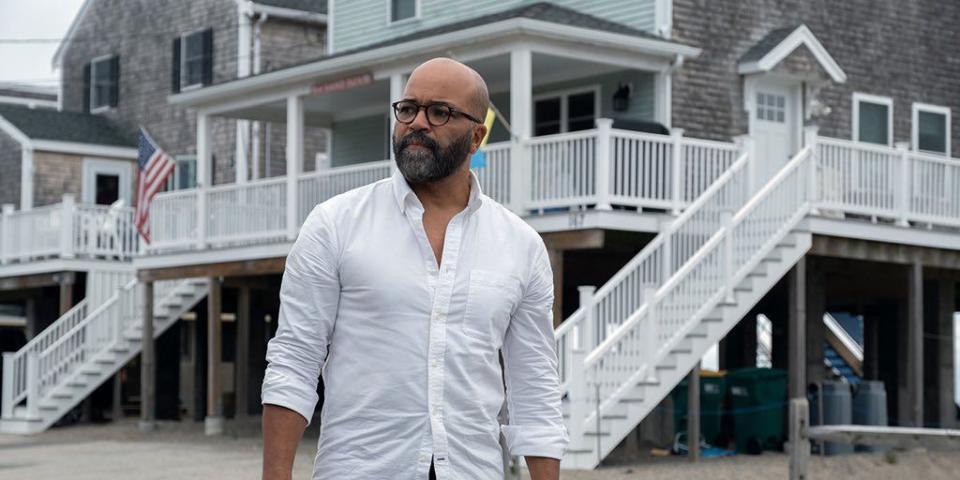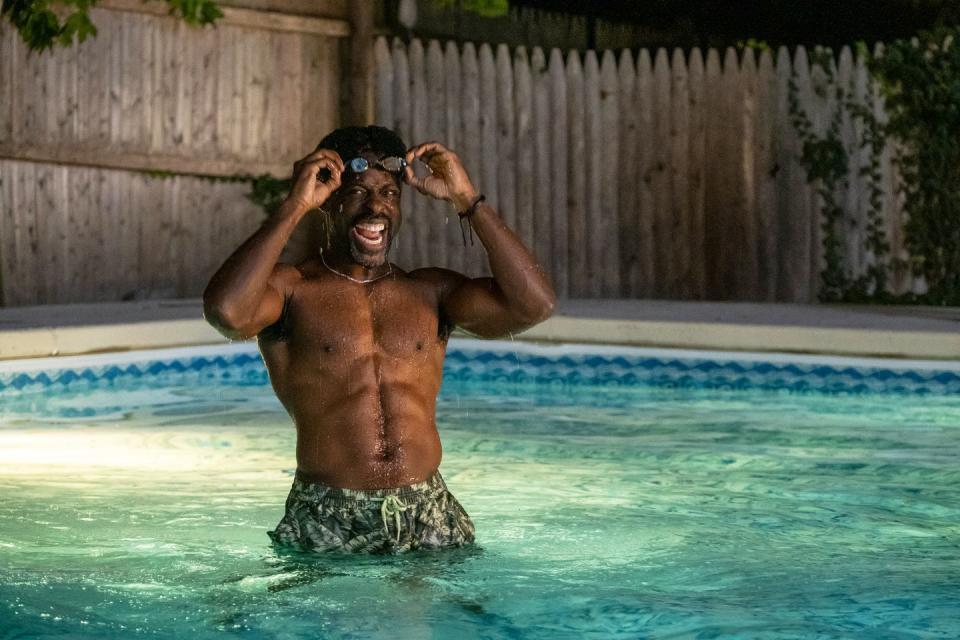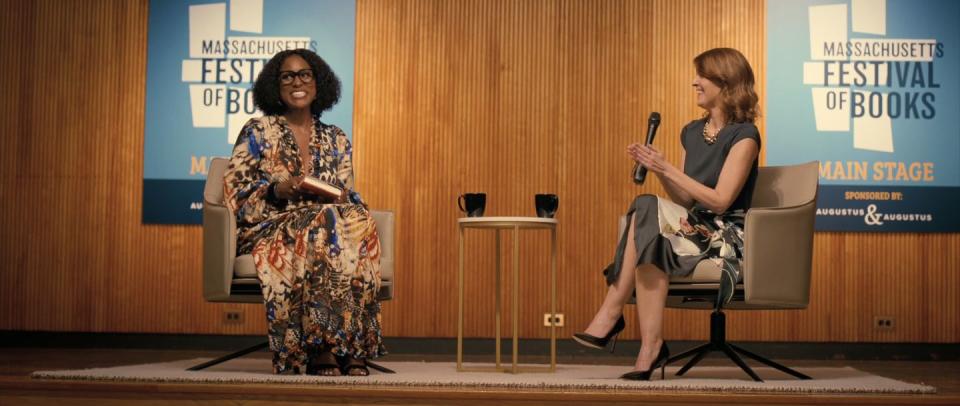American Fiction's best scene challenges how we view Black representation

American Fiction spoilers follow.
Who gets to define the Black experience? That's the question posed by American Fiction, the comedy-drama from first-time writer-director Cord Jefferson that is one of the Best Picture contenders at the Oscars.
The film follows protagonist Thelonious "Monk" Ellison (Jeffrey Wright, also nominated for Leading Actor at the Oscars), a frustrated professor and author whose retellings of classical stories aren't pulling in the same money or popularity as books he perceives to pander to Black stereotypes.
Enter Sintra Golden (Issa Rae). Her novel, We's Lives in Da Ghetto, is the read of the summer, praised for its 'authentic, raw and honest' storytelling. The short snippet we hear is full of slang and heavy African American Vernacular English, with one character off to the pharmacy to see if she's pregnant – again.
Based on Erasure, a 2001 novel by Percival Everett, American Fiction sees Monk get angry. Tired of his books being criticised for not being "Black" enough, he decides to give editors what they want, penning the satirical My Pafology, full of Black stereotypes and tropes.

There are drugs, guns, absent fathers and a problematic attitude towards sex, all written in the kind of dialogue he believes audiences will lap up as ‘gritty'. He chooses the pseudonym Stagg R Leigh, a name plucked from Black American folklore.
It's a far cry from Monk's own middle-class upbringing – beach house included. His dad was a doctor, his brother and sister (Sterling K Brown and Tracee Ellis Ross) following in their father's footsteps.
Monk is clear in his opinion that these stereotypes are reductive and damaging, flattening the Black American experience into one of pain and poverty. Many liberal viewers of American Fiction will agree, arguing that Black people should be portrayed with nuance and at all levels of society; Black women shouldn't have to be strong and resilient after trauma, Black men don't have to be hyper masculine to be attractive.
It's a shift that's started to happen on screen, albeit far too slowly. Take Sintara herself, Issa Rae, as President Barbie in Barbie, David Jonsson's bashful romantic lead in Rye Lane and Moonlight's seminal, and Oscar-winning, exploration of queer Black identity – a topic also touched on in American Fiction.

But while this movie initially seems to present Monk as unarguably in the right (textbook eye-roll-inducing moments include seeing his name spelled incorrectly at a literary festival panel and a TV advert spotlighting 'Black stories', all of which focus on slavery and gangs), one American Fiction scene will have audiences second-guessing their well-intentioned perspectives.
Monk's novel, which he has at this point insisted be renamed F**k to see just how far he can push his editors, ends up being submitted for the literary prize he is asked to judge alongside Sintara in a move to diversify the judging panel.
Entranced by F**k, the white judges discuss it reverentially, not knowing Monk is behind the triumph. Sintara is the only panellist who criticises the work, seeing it exactly how Monk intended.
Monk is initially pleased that someone can finally see F**k as the joke it was intended to be, written for white audiences to feel worldly and a little bit less racist.
But the conversation takes a turn when Monk asks Golden if she's being hypocritical – after all, how is F**k different to We's Lives in Da Ghetto? Didn't she go to a very nice school? Isn't she just a hustler, making money out of the same damaging Black stereotypes that serve to keep the community down?

It's a tense scene that will have audiences holding their breath. Sintara argues that she gives a voice to the voiceless, and just because they're both middle class, it doesn't mean that every Black person is.
Sintara has research and integrity on her side, and Monk hasn't even read her book anyway. She asks if Monk criticises white writers in a similar way, or if his accusations are reserved solely for Black women, and why shouldn't she make her living by giving readers what they want?
The scene is pivotal, yet doesn't actually appear in Erasure. Writing in the new issue of Empire, Jefferson explained: "I was very excited for the moment in which [Monk and Sintara] were going to have this ideological conversation about their differing perspectives.
"That debate never came [in the book], so when I sat down to write the movie, I knew I needed to include that scene somewhere… In turning the tables [on Monk, Sintara] turns the tables on the audience too."
Up until this point, we've laughed along with Monk. But Sintara's perspective is one that's rarely heard in a world where everything is becoming more binary – yes we should be elevating Black stories, but should this be at the expense of dismissing others from the most disenfranchised sections of society?
American Fiction welcomes the grey areas between the black and white, inviting audiences to consider that there might not be a right or wrong answer.
American Fiction is out now in cinemas.
You Might Also Like


